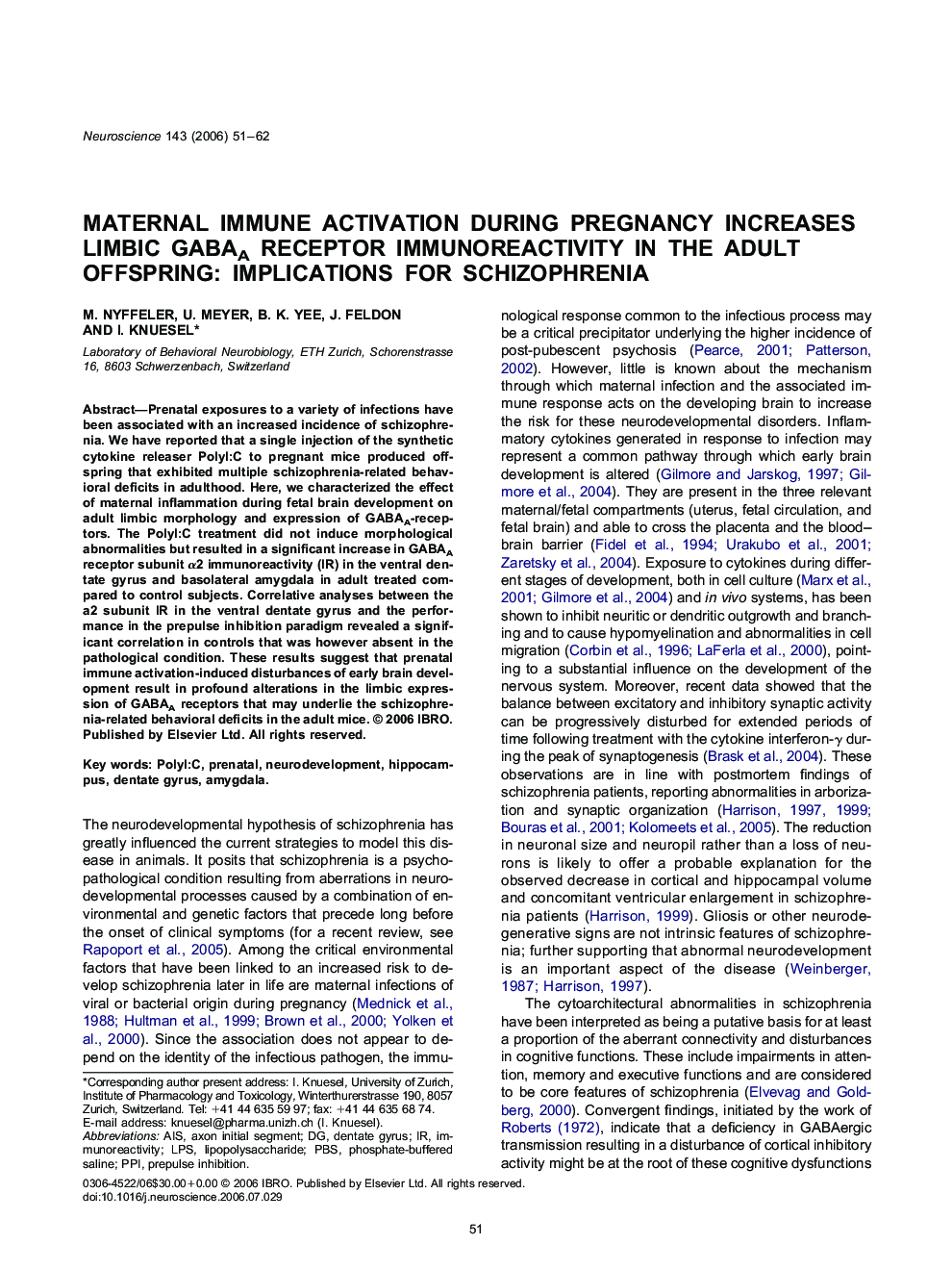| Article ID | Journal | Published Year | Pages | File Type |
|---|---|---|---|---|
| 4341412 | Neuroscience | 2006 | 12 Pages |
Prenatal exposures to a variety of infections have been associated with an increased incidence of schizophrenia. We have reported that a single injection of the synthetic cytokine releaser PolyI:C to pregnant mice produced offspring that exhibited multiple schizophrenia-related behavioral deficits in adulthood. Here, we characterized the effect of maternal inflammation during fetal brain development on adult limbic morphology and expression of GABAA-receptors. The PolyI:C treatment did not induce morphological abnormalities but resulted in a significant increase in GABAA receptor subunit α2 immunoreactivity (IR) in the ventral dentate gyrus and basolateral amygdala in adult treated compared to control subjects. Correlative analyses between the a2 subunit IR in the ventral dentate gyrus and the performance in the prepulse inhibition paradigm revealed a significant correlation in controls that was however absent in the pathological condition. These results suggest that prenatal immune activation-induced disturbances of early brain development result in profound alterations in the limbic expression of GABAA receptors that may underlie the schizophrenia-related behavioral deficits in the adult mice.
